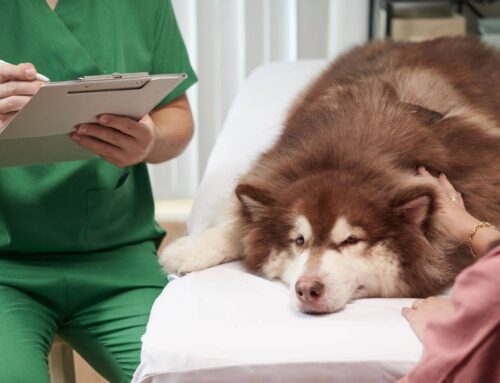Vaccinations are a crucial component of your pet’s overall health and well-being. By protecting your pet from contagious diseases, vaccinations can prevent suffering, costly treatments, and even death. In Grand Junction, CO, where the climate and wildlife can pose unique health risks, it’s essential to stay informed about the vaccinations your pet needs.
Understanding Pet Vaccinations
Vaccinations work by introducing a weakened or inactive form of a disease-causing agent into the body. This triggers the immune system to produce antibodies that can fight off the disease if your pet is exposed to it in the future. While not all diseases can be prevented through vaccination, many serious illnesses can be avoided with regular vaccinations.
Core Vaccinations for Pets in Grand Junction, CO
Core vaccinations are recommended for all dogs and cats, regardless of their lifestyle or where they live. These vaccinations protect against diseases that are common and can be life-threatening.
- Rabies: A viral disease transmitted through the saliva of infected animals, often through bites. Rabies is fatal to both pets and humans, making the rabies vaccine in Grand Junction essential.
- Distemper: A viral disease that affects dogs and can cause respiratory, gastrointestinal, and nervous system problems. Distemper is highly contagious and can be fatal if left untreated.
- Parvovirus: A highly contagious viral disease that affects dogs and causes severe gastrointestinal symptoms, including vomiting, diarrhea, and dehydration. Parvovirus can be fatal, especially in puppies.
- Feline Panleukopenia: A viral disease that affects cats and causes vomiting, diarrhea, and dehydration. Panleukopenia can be fatal, especially in kittens.
- Feline Viral Rhinotracheitis (FVR) and Calicivirus: These viral diseases affect cats and cause respiratory symptoms, including sneezing, coughing, and eye discharge. FVR and calicivirus can also lead to oral ulcers and pneumonia.
Non-Core Vaccinations for Pets in Grand Junction, CO
Non-core vaccinations may be recommended for some pets based on their lifestyle, age, and health history. These vaccinations protect against diseases that are less common but can still pose a risk.
- Bordetella Bronchiseptica: A bacterial infection that causes kennel cough in dogs. Bordetella is highly contagious and can be transmitted through contact with other dogs or their waste.
- Canine Influenza: A viral infection that affects dogs and causes respiratory symptoms, including coughing, sneezing, and nasal discharge. Canine influenza is highly contagious and can spread quickly in environments where dogs congregate.
- Feline Leukemia Virus (FeLV): A viral disease that affects cats and can lead to various health problems, including cancer and immune system disorders. FeLV is transmitted through saliva, nasal secretions, and blood.
- Feline Immunodeficiency Virus (FIV): A viral disease that affects cats and weakens the immune system, making them more susceptible to infections. FIV is transmitted through bites and saliva.
Vaccination Schedule for Pets in Grand Junction, CO
The vaccination schedule for your pet will depend on their age, breed, and lifestyle. Your veterinarian can recommend a specific vaccination schedule based on your pet’s individual needs. However, most puppies and kittens will receive a series of vaccinations during their first year of life. Booster vaccines for pets are then required to maintain protection against diseases.
- Puppies: Puppies typically receive their first vaccinations at 6-8 weeks of age and then every 2-4 weeks until they are 16-20 weeks old. Booster vaccinations are recommended annually.
- Kittens: Kittens typically receive their first vaccinations at 6-8 weeks of age and then every 2-4 weeks until they are 16-20 weeks old. Booster vaccinations are recommended annually.
Factors to Consider When Choosing Pet Vaccinations
When deciding which vaccinations are right for your pet, it’s important to consider several factors:
- Lifestyle: Pets that frequently interact with other animals or spend time outdoors may be at a higher risk for certain diseases.
- Age: Puppies and kittens are especially susceptible to infectious diseases and may require more frequent vaccinations.
- Health History: Pets with underlying health conditions may be more prone to certain diseases and may benefit from additional vaccinations.
- Local Prevalence: The prevalence of certain diseases in your area can also influence the recommended pet vaccination schedule.
Keeping Your Pet Healthy in Grand Junction and Beyond
At Dr. Jean A. Fromm’s Veterinary Clinic, we understand the unique needs of pets living in Grand Junction, Clifton, Palisade, and the surrounding areas. With our comprehensive vaccination services in Grand Junction, we can help ensure your furry friend is protected against preventable diseases commonly found in our region.
Remember, vaccination is just one aspect of a complete pet wellness plan. Whether you have a curious puppy exploring the trails of the Colorado National Monument, or a playful kitten discovering the outdoors, our team can create a personalized healthcare regimen to keep your pet thriving. Schedule an appointment with Dr. Fromm today to discuss your pet’s vaccination needs and ensure they stay happy and healthy for years to come.




